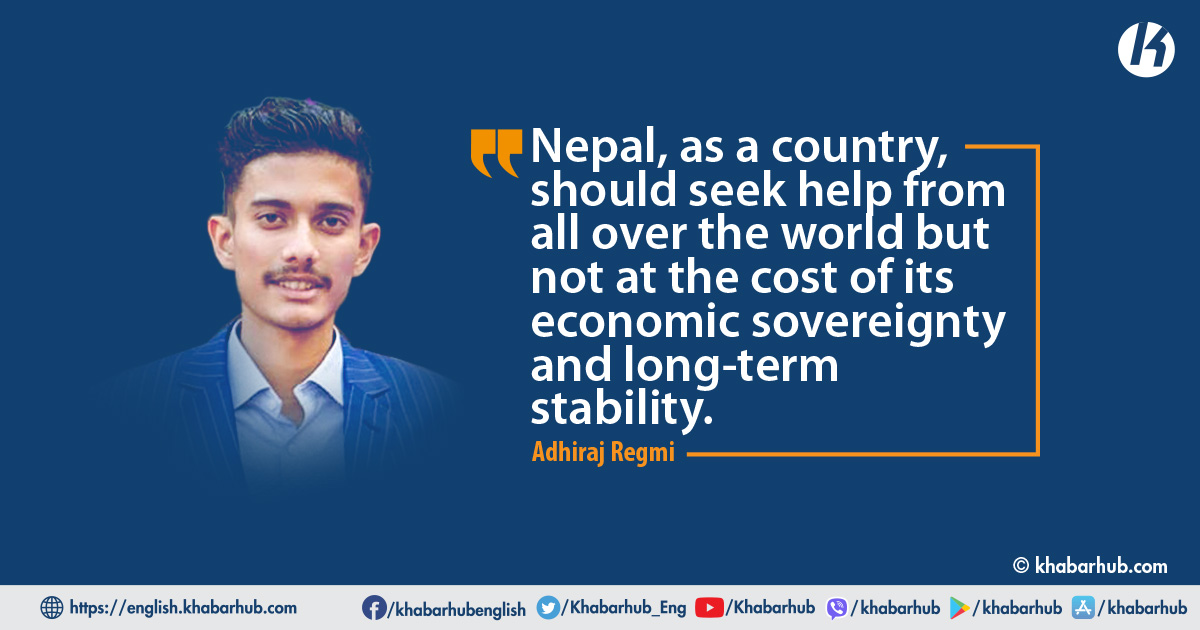Economic Colonization is a flourishing concept in today’s era. A country cannot directly invade another’s territory and it is unwise to do so as this can tarnish the invading country’s image.
Unfortunately, this is happening in Ukraine because of Russia’s invasion.
However, this does not stop any country from influencing and intervening in other’s political affairs as the world is connected like never before.
The escalating competition between different superpowers to establish their power has led to a situation whereat they leave no stone unturned to be a heavyweight in global diplomacy and they have surpassed all extremes in achieving that.
Debt trap is one such technique of economic colonization and the pioneer of this theory is none other than Nepal’s northern neighbor, China.
Nepal is in a grave situation, economically and we all dream to be a prosperous country soon.
There is just one complaint throughout the country that reverberates that we are not progressing as per our potential.
And this frustration can lead to desperation. The desperation here being talked about is about taking loans from different countries in projects with low ROI and hefty interest rates.
Let’s take an example of this situation: We can witness people taking interest often called ‘meter byaj’ in an informal market where the lender provides short-term loans to a borrower who is in desperate need of cash.
Now the problem arises when the borrower is unable to pay back the interest amount because the debt is offered at an unsustainable rate.
In this process, the borrower pays way more than one has to and there are incidences of losing collateral that is worthier than the loan amount itself.
Now imagine if we follow this desperation and accept whatever the terms any country provides, one day or the other it will come back at us.
There is enough evidence in Sri Lanka, Pakistan and countries of Africa where China mastered the debt trap diplomacy and the countries have paid the consequences of their desperation.
China is the single largest creditor in the world and it is evident that their interest is almost similar to the commercial market interest rate.
This is very uncommon as the interest rate on development financing is always at the minimum.
If compared to the western governments, the Chinese interest rate is almost 300% more. In addition to this, loans from China have shorter payback periods almost at a difference of 15-20 years.
A recent G20 initiative announced that the faster-growing economy will support the poorer countries through debt relief and on the other hand Beijing leaves no mercy when it comes to a debt trap.
China also made good advantage of the World Bank’s rejection of Bangladesh to finance Padma Bridge which creates a possibility of another debt trap in the region.
These countries are not just facing a debt trap but also the projects have faced major implementation problems and are left half underway as it turns out to be unsustainable.
According to a study, of the 165 countries (since 2000), 42 of the countries have borrowed debt from China that is equal to or greater than 10 percent of the GDP.
This is a significant share of the GDP of any country. In almost 40 countries, spending on health and education decreased between 2014 and 2016 while debt repayments rose.
Due to the growing global debt crisis, people have been hindered by their basic human rights of accessible health and education.
Pokhara International Airport financed by the Chinese bank provided the loan at 2 percent which is charged at high margins compared to other development concessional loans we borrow.
Investing more than a billion in an airport which is not even a priority for now makes it evident why we are also joining the club of Bangladesh to fall into the trap.
In addition to this, another infrastructural project i.e 70 kilometers Trans Himalayan Railway Network is a project financed by China that is more than 10% of the GDP.
With the technical viability of the project in question, moving forward with this project given the amount and the interest would be a suicidal decision for Nepal.
This does not mean we have to avoid all the financial dealings with Beijing. The point is to understand the threat of trap and move forward wisely in the best interest of the country’s long-term economy.
Concerning this, leaders have to be strong diplomatically to softly ignore China’s luxurious loans proposal and stress in bringing interest-free grants from the neighbor.
Nepal, as a country, should seek help from all over the world but not at the cost of our economic sovereignty and long-term stability.









Comment